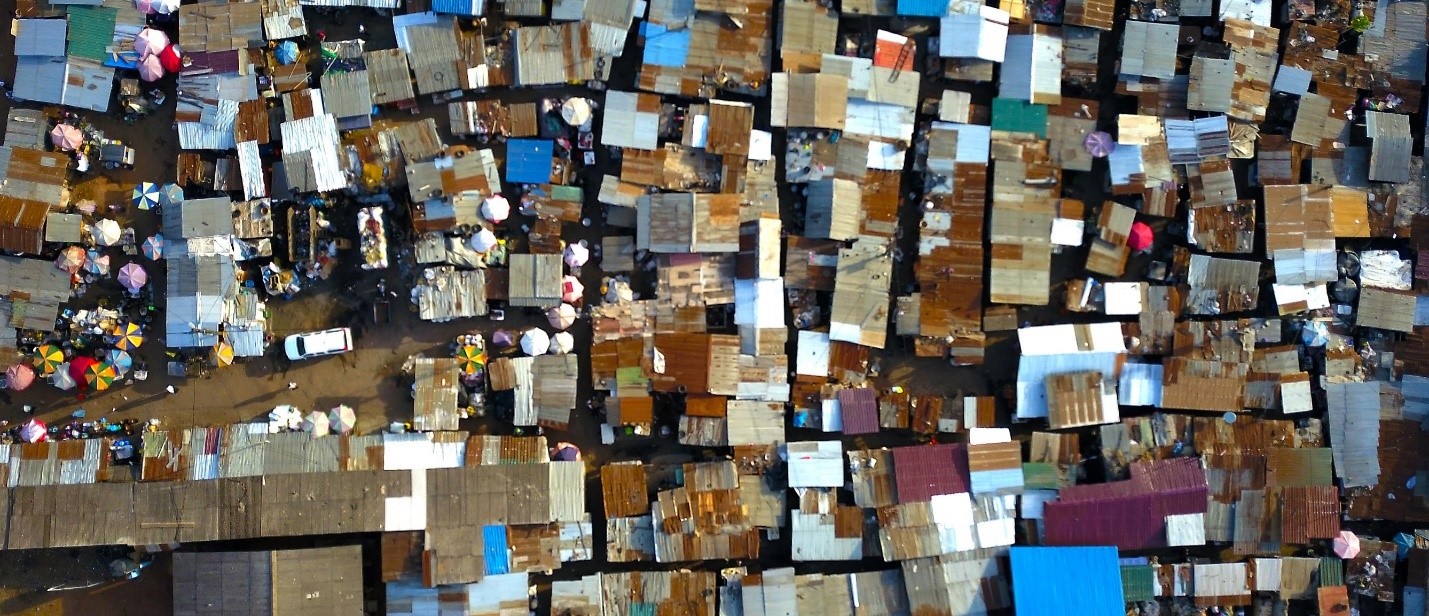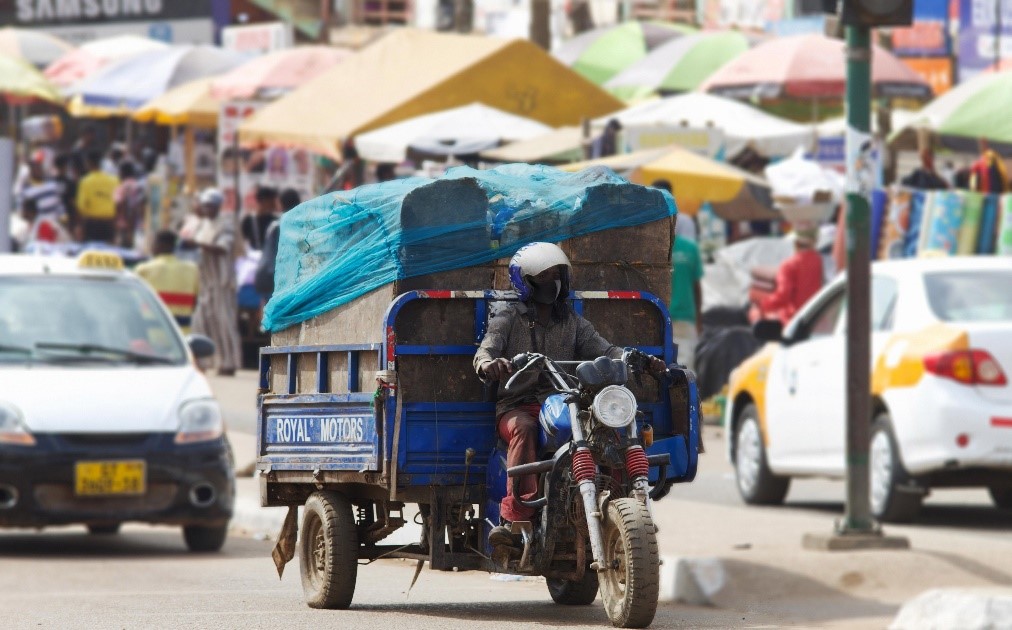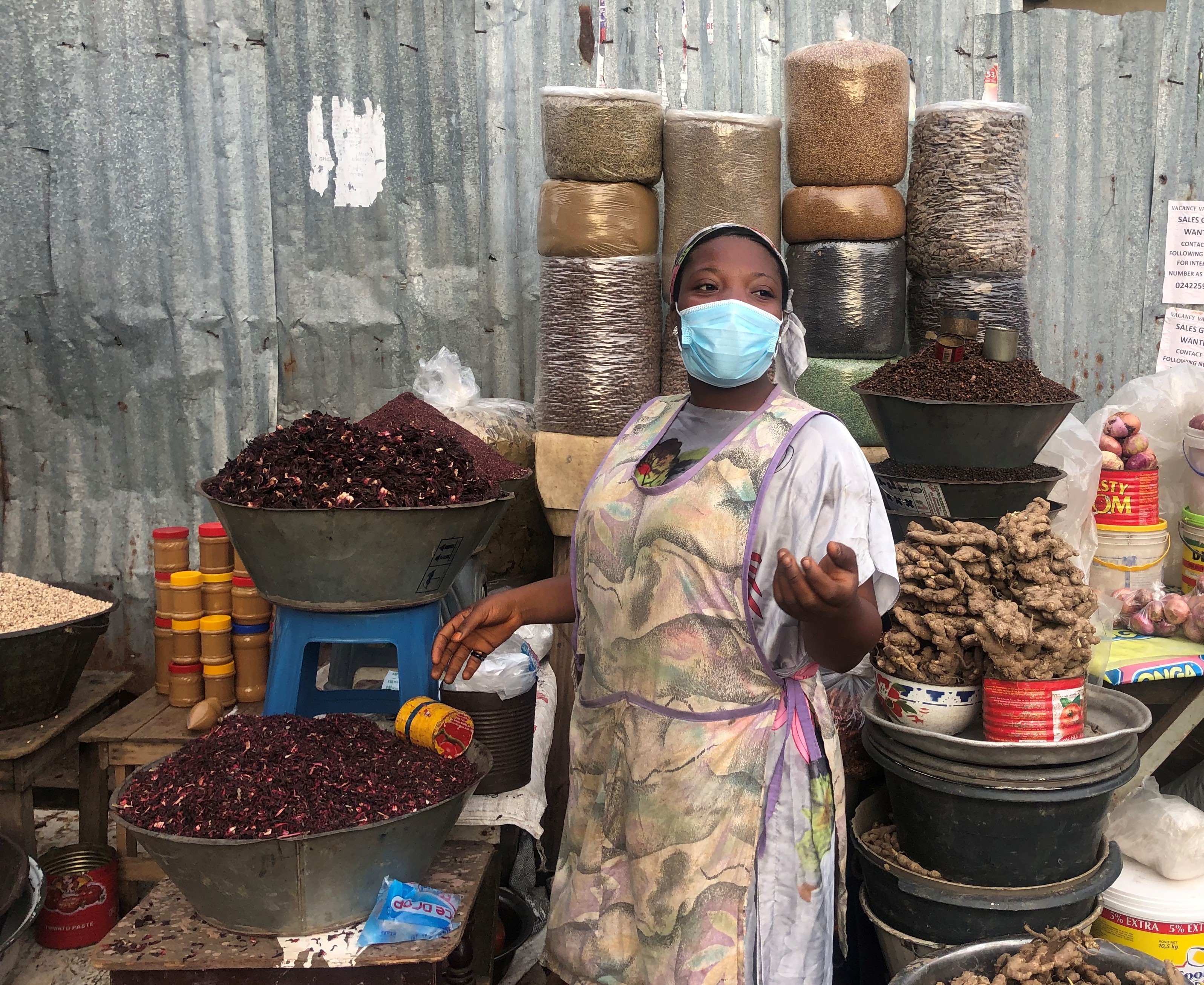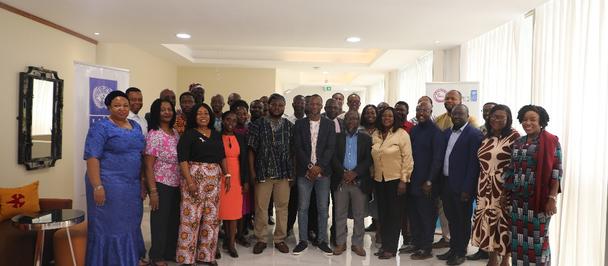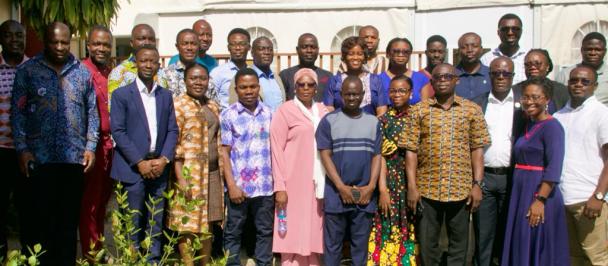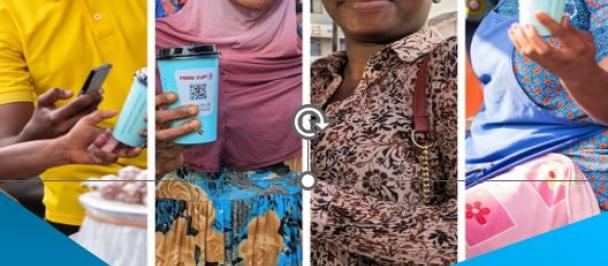By Allen Anie, Head of Experimentation, UNDP Accelerator Lab Ghana
Aerial view of an inner-city community in Accra. Photo Credit: UNDP Ghana
This blog discusses lessons from a 3-month project to clean up an inner-city community in Accra, which was grappling with problems of indiscriminate dumping of waste. It was led by local government (the Municipal Assembly), community representatives and the outsourced waste-services company for the area (Jekora Ventures Limited). The AccLab conducted 30 interviews with the community and stakeholders. To improve waste-management, different interventions were tested on 405 households and businesses including: mapping the locations of households and businesses and studying their patterns of waste generation; encouraging them to register for waste-collection; raising awareness; reducing waste-collection charges and developing partnerships between the formal and informal sectors.
This community is situated around a busy commercial center, with an often-congested main road and open-air markets where traders sell fresh food. There are many low-income households living on Ghana’s minimum daily wage (11.8 GHC or ~US$ 2). During peak business hours when markets are busiest, population density can be very high (~3000 people per hectare).
In Accra, modern waste compaction trucks typically serve areas whose residents (and businesses) can afford monthly waste collection fees of over 150 GHC (~US$30). Trucks, mainly operated by companies in the formal sector, offer door-to-door waste-collection on networks of accessible roads. In contrast, given the limited affordability and often narrow alleyways in low income communities (including some parts of the community studied), tricycles (known locally as Borla Taxis or Aboboyaas) or porters in the informal sector are widely used. Residents may also deposit their waste at public dumps.
In common with other parts of Accra, this community’s waste collection is overseen by local government, with day-to-day operations outsourced to a private company (the formal sector). However, a large informal sector operates alongside the formal (some stakeholders estimate that about 30% of collection in parts of Accra involves the informal sector). Under current arrangements, once waste is collected within the community, it is meant to be brought to transit points along the main road to be carried away by compaction trucks.
However, we saw many examples of indiscriminate dumping of waste, which the community attributed mainly to high costs of waste-collection and people’s behaviour.
It costs local businesses about 2 GHC ($0.40) daily to have waste collected by the formal sector - the informal sector charges about 50 pesewas ($0.10). Unsurprisingly, informal collection is a very popular option for waste disposal. A frequent narrative is that high unemployment and the relatively low start-up costs of informal waste-collection attract the unemployed to waste-collection – a positive outcome for employment. Competition among waste-collectors then drives costs to residents down – also a positive outcome for the community, but with unintended consequences. Where income (from collection) cannot cover costs (of transport to transit points and then landfills) some collectors may resort to dumping.
Residents also described many instances of indiscriminate dumping by other residents, which is not helped by weak enforcement of sanitation byelaws. Despite some notable successes, enforcement remains a challenge as dumping is often clandestine, occurring at night or coinciding with heavy rainfall when waste is thrown into gutters. This also leads to a “waste-attracting-waste” phenomenon, where piles of waste can quickly mushroom into public dumpsites.
In studying how the project tackled these issues, we learnt that the how (the approach) is as important as the what (the intervention). Community engagement is an obvious way to understand these messy problems and identify solutions, but in addition to “pitching” the project to the community and stakeholders at public events, the company also created a small, visible community office. This gave multiple opportunities for the community and stakeholders to identify tailor-made interventions, building on the shared memory of previous successful and importantly failed interventions.
Interventions
To ensure that waste-collection reflected the community’s use of waste services, the Municipal Assembly began by encouraging all residents to register to have their waste collected by the outsourced company. Registration was through door-to-door mapping of households and businesses and residents’ use of waste-services (formal and informal) was also researched. By involving members of the community in this process, registrations jumped from 2% to 64% of the community in 3 months.
As registration progressed, informal collectors were approached to partner with the company, either by continuing to collect waste or becoming streetcleaners with equipment (brooms and tricycles) provided by the company. In this way, some informal collectors have maintained their incomes while contributing their detailed knowledge of waste-management in the area.
Following consultation with the community, a daily collection charge of 1 GHC (US$0.20) was introduced, aimed at balancing concerns about affordability with the company’s need to cover its costs. Daily, weekly or monthly payment options are available to cushion the impact of these charges. Is the company recovering all its costs? No. Revenue from low-income communities is heavily subsidized by revenue from high-income areas. This is a medium-term “investment”, using registration and charging as routes to secure a focus on proper waste management, gradual changes in behaviour, and thereby reducing the costs of keeping the community clean in the longer term.
Effective targeting of communication about waste was also key. Instead of general messages about good sanitation, communication focused on practical benefits of registration. For example, what does registration mean for a market trader? Practically more frequent waste collection (twice a day), making markets more attractive to potential customers; and waste bins located sufficiently close to be accessible but far enough to reduce unpleasant smells.
Were these interventions successful?
Yes, based on metrics used to monitor the company’s performance and qualitative feedback from the community.
- Numbers of customers registered and regularly serviced – increased by 60%, with most continuing to pay for collection regularly, suggesting sustained change in attitudes towards managing waste. The quantity of waste collected directly from households and businesses increased accordingly;
- Quantity of waste collected from public areas (along streets and alleyways) – increased by 10%. This is additional waste, which was previously discarded on streets and in gutters, but is now deposited in bins or gathered in piles and disposed of. Qualitatively, there is less evidence of indiscriminate dumping;
- Social impact - the informal sector remains integral to the community’s waste-management and some livelihoods have been protected.
Less “either or” and more “both and”?
The analysis suggests that instead of “either…or” debates about formal or informal waste-collection, blended “both…and” partnerships can work on the ground. In Accra, rapid urbanization has already made these old dichotomies less relevant. Innovative minds are leveraging cross-sectoral knowledge and innovation to test different partnership models (including very loose arrangements).
Clearly, there are limits to what partnerships alone can achieve, without tackling behaviour. Mapping, registration, charging and targeted communication may appear to be merely traditional policy responses, but they also provide ways to gradually change behavior by encouraging new waste-management habits. The key is involving the community and stakeholders in defining jointly and realistically which new habits are desirable and sustainable in the community’s unique circumstances.
The AccLab continues to work with the community and stakeholders to monitor key success metrics and investigate broader questions including:
- Will the blended model survive?
- Will job opportunities created for informal waste-collectors be maintained, given the economic challenges from COVID-19?
- Building on earlier work, what can behavioural approaches tell us about the sustainability of behavioural change in similar communities?
A waste collector riding a 'Borla' (rubbish) Taxi in Accra. Photo: UNDP Ghana
A market trader selling food items. Photo: UNDP Ghana

 Locations
Locations